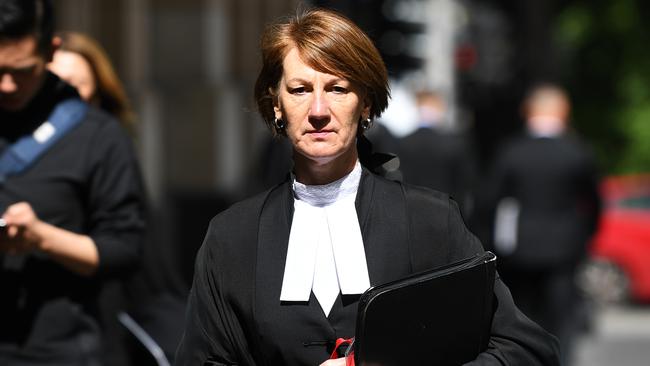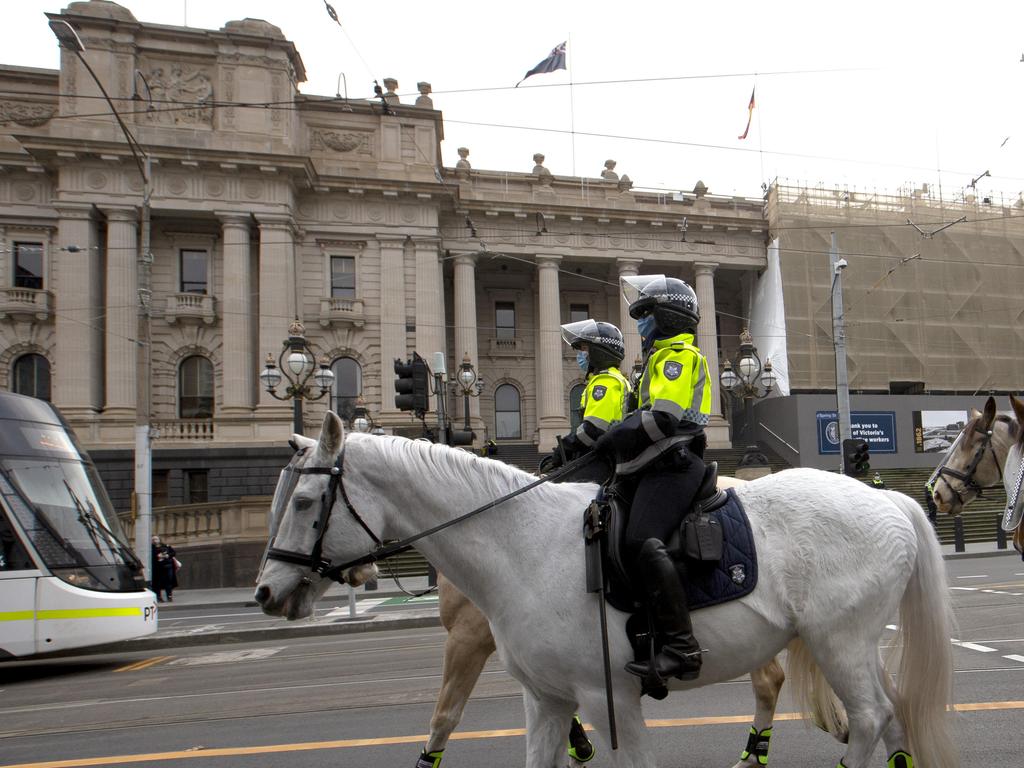
Judd is the second female to be elevated to the director of public prosecutions role. The first was Amanda Forrester in Western Australia.
Judd’s looming task was underlined this week when the New Zealand director of prosecutions launched OHS actions against those involved in organising visits to the White Island volcano, which erupted and killed 22 people.
The Victorian hotel quarantine catastrophe killed 35 times more people than the New Zealand tragedy. If Judd takes no action then the precedents she will be creating will substantially reduce the worker protections under the OHS act that were so carefully crafted by former premier Steve Bracks.
When Judd was appointed in March 2018 she made a bold and clear declaration in the Melbourne law school magazine:“I make the decisions, ultimately, about what prosecutions should proceed or should not proceed.”
And she was right because in 1983 Victoria, under ALP premier John Cain, became the first jurisdiction in Australia to establish a DPP that was independent of government in relation to prosecution decisions and the conduct of criminal proceedings.
In OHS decisions, Judd would normally be helped by recommendations from WorkSafe which has before it requests to launch prosecutions against some 16 individuals (all current or former cabinet ministers and public servants). On or before December 29, WorkSafe must report progress. It may ask for even more time but that doesn’t help Judd.
The evidence that has come forward in the Jennifer Coate inquiry reveals that many of the individual actions taken clearly caused a likelihood of prosecution.
But leaving aside those individual actions, one action has emerged in the evidence before the Coate inquiry which eminent occupational health and safety lawyers say is in clear breach of the act.

In this context let’s first look at some of the stipulations of the Victorian act and compare those requirements to the apparent clear breach of OHS rules:
* A person, entity or organisation has legal obligations under the OHS Act to do things to minimise and prevent harm to others. And that obligation applies to the private and public sectors.
* Breaches of the Act can occur for what has been done or not done. The standard to be met is to do what is “reasonably practicable”.
* Although the Act has application to “work safety”, it has a broad reach in what constitutes “work” and a “work site”. The operation of hotel quarantine is well within the ambit of the OHS Act as a “worksite”.
* Even though the Act applies to keeping “employees” safe, the obligations require responsible parties to keep “others” safe, and this includes members of the public.
* It would be an expectation under the OHS Act that, in the management of hotel quarantine, the government would have had a document or documents detailing policies and procedures.
* There was no such detailed plan, policy or procedures document. Evidence submitted under oath by the Secretary of the Victorian Department of Health and Human Services states that “… there were no plans in place for a mandatory hotel quarantine program for returned travellers…”.
* Under the OHS Act, if a cinema complex failed to have a written policy and procedures manual for the emergency evacuation of the cinema complex (worksite) the failure to have such an evacuation manual/procedure, is of itself a breach of the Act. This applies even if no evacuation were to ever occur and no person were ever put at risk. It is the failure to have the plan that creates a breach of the Act. In the case of a cinema, members of the board and senior executives would be prosecuted.
The requirement for such plans is fundamental to OHS compliance and the WorkSafe Authority therefore has a requirement under the OHS Act to investigate the Victorian government, responsible departments, ministers and public servants for such a failure.
* While eminent lawyers say failure to have such a plan is of itself prima facie evidence of a breach, the level of penalty depends on whether the need to have a plan for hotel quarantine was “reasonable and practicable”.
As it turned out Victoria had a plan that covered most aspects of the quarantine manoeuvre but no plan for the operation of the hotels, which is where the disaster started. All other states involved in hotel quarantine had a plan and those plans worked.
So here we have a relatively straightforward prosecution case. Of course there is the need to investigate the roles of the ministers and public servants who were involved in the affair.
While on the surface that is more complex, there is now a mountain of evidence available.
Normally a body like WorkSafe Victoria, when faced with 800 people dying in an industrial accident, would pull out all stops to launch prosecutions.
If by December 29 there is little WorkSafe progress then increasingly the responsibility switches to Kerri Judd.
No one envies the task of either WorkSafe or Judd in launching prosecutions against the government that appointed them, but the Victorian Act clearly covers the public service and government activities.
Kerri Judd is unlikely to have a relaxing Christmas dinner.






The Victorian Director of Public Prosecutions, Kerri Judd, faces one of the most difficult tasks ever encountered by a person in her position --- should she launch occupational health and safety (OHS) prosecutions against current and/or former members of Victorian cabinet and senior public servants?